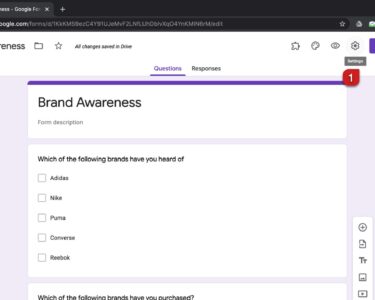In the dynamic world of software development, ensuring the reliability of APIs (Application Programming Interfaces) is paramount. APIs serve as the backbone of modern applications, facilitating communication between different software components. However, even the most well-designed APIs can encounter issues, leading to disruptions in service and user dissatisfaction. This is where API checkers come into play, offering developers a powerful tool to verify the functionality and performance of their APIs.
Comparison Table: Choosing the Right API Checker
| Feature | API Checker A | API Checker B | API Checker C |
|---|---|---|---|
| Uptime Monitoring | ✓ | ✓ | ✓ |
| Performance Testing | ✓ | ✓ | ✓ |
| Alerting Mechanisms | ✓ | ✓ | ✓ |
| Integrations | ✓ (Limited) | ✓ (Extensive) | ✓ (Moderate) |
| Scalability | ✓ (Limited) | ✓ (High) | ✓ (Moderate) |
| Ease of Use | ✓ (Complex) | ✓ (Intuitive) | ✓ (Moderate) |
| Customization | ✓ (Limited) | ✓ (Extensive) | ✓ (Moderate) |
| Reliability | ✓ (Mixed) | ✓ (High) | ✓ (High) |
| Support | ✓ (Basic) | ✓ (Excellent) | ✓ (Good) |
Understanding API Checker
API checker, also known as API monitoring or API testing tool, is a software solution designed to assess the health and performance of APIs. It works by sending requests to the API endpoints and analyzing the responses for errors, latency, and other metrics. By simulating real-world usage scenarios, API checkers help identify potential issues before they impact end-users.
Benefits of Using an API Checker
Implementing an API checker in your software development workflow offers numerous benefits:
Early Detection of Issues: API checkers proactively identify problems, allowing developers to address them before they escalate.
Improved Reliability: Regular monitoring ensures that APIs consistently meet performance standards, enhancing overall reliability.
Enhanced User Experience: By preventing downtime and errors, API checkers contribute to a seamless user experience, fostering customer satisfaction and loyalty.
Data-Driven Decision Making: Detailed metrics provided by API checkers empower developers to make informed decisions about API optimization and resource allocation.
Cost Savings: Detecting and resolving issues early reduces the likelihood of expensive downtime and reputation damage.
How to Choose the Right API Checker

When selecting an API checker for your development projects, consider the following factors:
Feature Set: Look for essential features such as uptime monitoring, performance testing, alerting mechanisms, and integrations with popular development tools.
Scalability: Ensure that the API checker can accommodate the scale of your applications and anticipated growth.
Ease of Use: Opt for a user-friendly interface and intuitive setup process to streamline adoption and minimize training time.
Customization Options: Seek flexibility in configuring monitoring parameters and alerts to align with your specific requirements.
Reliability and Support: Choose a reputable provider with a track record of reliability and responsive customer support.
Best Practices for Implementing API Checker
To maximize the effectiveness of your API checker, follow these best practices:
Define Monitoring Goals: Clearly define the key metrics and performance thresholds that matter most to your application.
Establish Alerting Mechanisms: Configure alerts to notify relevant stakeholders promptly when issues arise, ensuring timely response and resolution.
Regular Maintenance: Schedule regular checks and updates to keep the API checker configuration and integrations up-to-date.
Continuous Optimization: Leverage insights from monitoring data to identify areas for improvement and optimize API performance.
Collaborative Approach: Encourage collaboration between development, operations, and quality assurance teams to foster a culture of accountability and shared responsibility.
Case Studies Real-world Examples
Let’s explore two real-world examples of how API checkers have made a difference in software development:
Case Study 1: E-comؐmerce Platform
A leading e-commerce platform implemented an API checker to monitor the performance of its payment gateway API. By detecting latency issues and failed transactions in real-time, the API checker helped the platform maintain a high availability and ensure seamless checkout experiences for customers.
Case Study 2: SaaS Application
A SaaS (Software as a Service) provider integrated an API checker into its development pipeline to monitor the reliability of its cloud-based APIs. Through continuous monitoring and proactive alerting, the API checker enabled the provider to address performance bottlenecks and optimize resource utilization, resulting in improved service reliability and customer satisfaction.
Read More Blogs Click here Brook B Taube
Conclusion
In today’s digital landscape, where software reliability is synonymous with business success, API checkers play a crucial role in ensuring the seamless operation of applications. By providing developers with actionable insights and early warning signs of potential issues, API checkers empower organizations to deliver high-quality software that meets the expectations of modern users. As software development continues to evolve, embracing API checker technologies will be essential for maximizing reliability and maintaining a competitive edge in the market.
Frequently Asked Questions (FAQs)
What is an API checker?
An API checker, also known as API monitoring or API testing tool, is a software solution designed to assess the health and performance of APIs. It works by sending requests to the API endpoints and analyzing the responses for errors, latency, and other metrics.
Why is an API checker important in software development?
API checkers are essential in software development for several reasons: They proactively identify issues, allowing developers to address them before they impact end-users.
How do I choose the right API checker for my project?
When selecting an API checker, consider factors such as feature set, scalability, ease of use, customization options, reliability, and support. Look for essential features like uptime monitoring, performance testing, alerting mechanisms, and integrations with development tools.
What are the best practices for implementing an API checker?
To maximize the effectiveness of your API checker, follow best practices such as defining monitoring goals, establishing alerting mechanisms, regular maintenance, continuous optimization, and fostering a collaborative approach between development, operations, and quality assurance teams.






